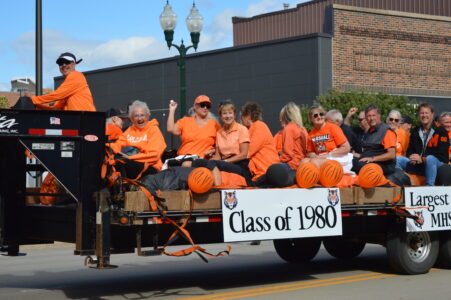Marshall approves trail grant agreement
Construction of path connecting C Street, Southview Drive can move forward
MARSHALL — Construction of a new Marshall city trail running from C Street to Southview Drive can move forward, after the Marshall City Council approved a roughly $62,700 grant agreement with the Minnesota Department of Transportation.
Marshall Public Works Director Jason Anderson said work on the new trail could possibly start this year.
“This is a project that was awarded to A&C Excavating on July 22, contingent on this grant agreement,” Anderson said. “I think the project might still start this fall. The contractor was originally telling us 2026, but I think they might get going this fall.”
Together with other federal and state grants, the project will be 100% grant-funded, Anderson said. A&C Excavating’s bid for the project was about $337,825. Agenda packet materials for Tuesday’s meeting said there would also be about $54,000 in engineering costs, which are not eligible for grant funding.
At Tuesday’s regular council meeting, council members voted to approve an agreement for a $62,767 Active Transportation (AT) Grant. Marshall Mayor Bob Byrnes abstained from voting. Byrnes said he serves on MnDOT’s Area Transportation Partnerships committee and the state’s Active Transportation Committee. “So I’m kind of on both sides of that funding,” he said.
The city plans to build a 10-foot wide concrete walking and biking trail from C Street to Southview Drive. The trail would mainly run along Progress Drive, behind Marshall Middle School. A short segment would connect to the existing sidewalk in front of Southview Elementary. Part of the trail would then continue east along Southview Drive to the intersection with East Main Street.
Marshall was previously awarded both federal and state grant funds for the C Street-Southview Drive trail project. Materials in the council’s agenda packet Tuesday said the city had secured a $399,528 Transportation Alternatives grant in 2020, and $192,694 in AT Grant funding this year. The state grant funding will help cover a 20% local match required by the federal grant program, agenda packet materials said.
Engineering costs and any construction costs that go above the amount of grant funds will be funded with municipal state aid street funds, agenda materials said.


